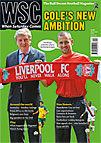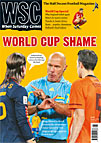 The former European champions spent heavily throughout the 1990s and ultimately suffered after floating on the stock market. A similar financial fate is unlikely to befall the cash-rich visitors. Uli Hesse reports
The former European champions spent heavily throughout the 1990s and ultimately suffered after floating on the stock market. A similar financial fate is unlikely to befall the cash-rich visitors. Uli Hesse reports
Somehow I knew they were English the moment I spotted them. They were selling so-called friendship scarves – half yellow for hosts Borussia Dortmund, half sky-blue for visitors Manchester City – like so many other people have done along this paved passageway that leads from the station to the stadium. And they looked like any of the other guys here who hope to make a few euros when Dortmund have a home game, even if it’s a meaningless pre-season friendly, by selling canned beer or fan gear. One was holding a scarf aloft, the other stood with a huge nondescript sports bag slung over his shoulder. Still, I would have bet a fiver they were English.
